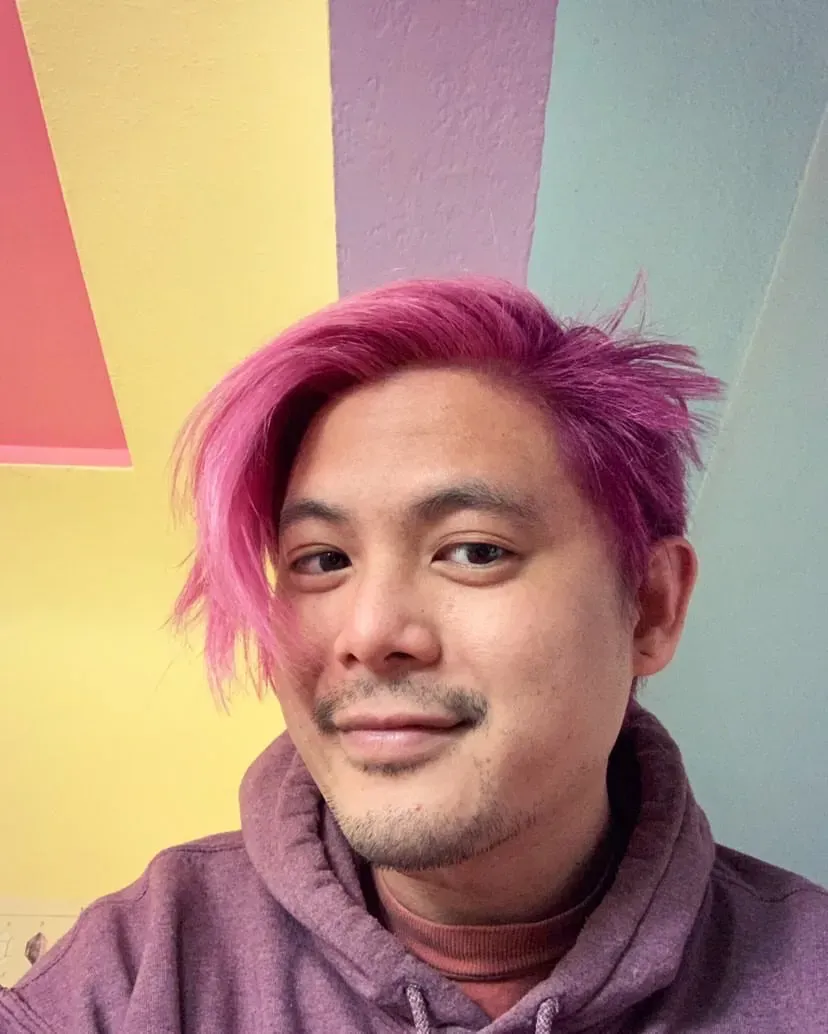Ceramics instructor and potter Phi Le remodels Seattle's pottery scene through unique creations and community-centered projects. They give every piece their all, and shape spaces to welcome all people who want to learn pottery.
In a conversation with Le, they shared their background and identities, experiences as a potter and instructor, and the desires found at the center of their work.
Artistic background
Almost entirely self-taught, Le started doing ceramics at age 18. Wanting to try out something new before graduating, they took their first ceramics class at the end of high school. Said Le, "It was the first art class I'd ever taken... But after [that], I decided I didn't want to do anything else, and so here we are."
Since then, Le has spent 14 years in Seattle teaching themself the art of pottery in "whatever small space [they] had." Le's business started in parts of their home and small studio spaces in Seattle, but in January 2020 they moved into a larger Tacoma studio.
Ceramics work
Le specializes in creating pots, since they enjoy working with ceramics to create functional art.
Le is most drawn to the intimacy of the art. They said that "every piece of clay that you touch takes on a little bit of you. And being a teacher for the past few years has shown me so many amazing things that can happen when everybody touches clay."
With a warm smile, Le went on to say that "we always think about how [clay] moves through our hands and what kind of information we're putting into the clay when we produce work."
As they develop their career, Le spends more time on each piece than when they first started. They said that their goal is not to produce more pieces faster but to craft each pot with more time and stories in it.
Le thinks of pottery as an art everyone should try at least once, and they want others to understand that people "have been working with [clay] since the beginning of humankind."
Proud progress and future goals
Le said that the proudest part of their career is where they are today, and that they work to take steps forward with each new day. Their business empowers them to "get a little bit more refined in [their] technique and how [they] approach the world."
As they take their current work and look to the future, they strive to "really ignite a community of people who want to rethink how they interact with the community."
Le takes action on this by centering donations to the community in their business model. Every month, they sell all of their work at auction to raise money, then donate the profits to the Lavender Rights Project, an organization run by the Washington Black Trans Task Force, to support Black Trans people in the state. Le also supports the Black Lives Matter movement, saying that its work is benefiting everyone in the community.
As Le said, "We don't need to make money just for profit [and] just to go into a bank account. I want to use my business to create a direct flow into the community and not really keep any of it that isn't absolutely necessary for running the business."
They emphasize that in their business, they never want to be the one person making decisions about how money is used. Le prioritizes an intersectional approach to addressing community needs through art and uplifting minority voices.
Identities
Le brings their identities as a Vietnamese nonbinary person to their pottery work. They left Vietnam for America at 24 days old as a refugee with their parents and siblings, then spent eight years homeless, living in refugee camps in Hong Kong and the Philippines before settling in the Seattle area.
Public school gave them the opportunity to try ceramics for the first time, and it was a low- stakes, welcoming class. Otherwise, they say they "never really felt invited into ceramics spaces" and could not afford more classes then; as a result, they have mostly taught themself the art of pottery.
More recently, Le has been embracing their identity as a nonbinary person. They began including pronouns in introductions at Saltstone Ceramics, and it helped them tune into a dissonance in how they identify themself. They say that, having reflected on it, "trying to move forward as a nonbinary human has been harder than [they] thought." After finding that they can be nonbinary and use "they" pronouns, they say that they wonder: "Is this really my thought, and my feeling and my prejudice [sic], or is it something that is in the culture that I've absorbed and held on for too long?"
When Le works through anything in their life, they connect it to their art. They apply "the process of assessing and reworking, and then ultimately reclaiming" parts of their life in their studio through their pottery.
In their studio space and community, Le has found that the Tacoma art community has embraced them. The community, they say, does not "care where I come from, really; they just care about what I'm talking about and what I'm bringing forward and the artwork that I produce." This sense of belonging helps them feel seen and understood as an artist, and they are proud of it.
Ceramics classes and art
Le is currently an instructor at their own studio in Tacoma, and they run classes while creating their own pots. They run free classes for BIPOC people four days per week to foster a safe and welcoming environment for people of all skill levels to learn pottery. They also teach group pottery classes in the evenings. Le also sells their art at auctions for charity, and they share their pieces and auction information online.
Keep up with Phi Le's work on Instagram @phipottery, and register for a class with them online at phipottery.com.
Photos courtesy of Phi Le


